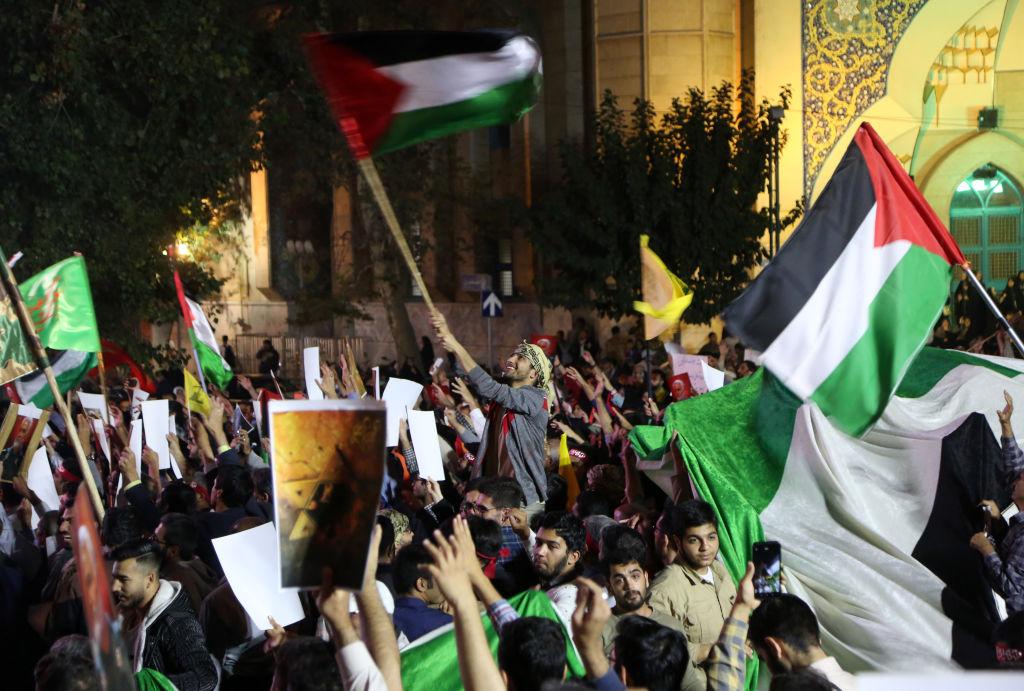
As the world comes to grips with the death toll from the multi-pronged assault by Hamas on southern Israel and tries to understand how Israel’s security agencies were blindsided and its military not appropriately postured to respond, people also want to know why it happened and what the strategic aim was.
There’s been a mad scramble from some in the commentariat to point the finger at Iran as being responsible. Tehran is a long-time supporter of Hamas and the Palestinian cause in general and is implacably opposed to Israel. Ideological differences—Sunni Hamas versus Shia Iran—are routinely set aside because Iran and Hamas are fellow swimmers in what Hezbollah Secretary-General Hassan Nasrallah once described as the ‘Islamic current’.
But those differences are nevertheless real, and to describe Hamas as an organisation beholden to Iran and willing to do its bidding is simplistic at best. As a Palestinian group based in Gaza, it has a peculiarly Palestinian and Gazan worldview separate from that of Iran and Hezbollah. Relations between Hamas and Hezbollah, for example, soured over disagreements over whom to support in the Syrian uprising.
There’s no denying that Iran and Hamas have enjoyed a close relationship. Tehran has provided training, logistical and financial support as part of its support to ‘frontline’ semi- and non-state actors bordering Israel. But to portray Hamas as simply doing Tehran’s bidding is to misunderstand the nature of such relationships because it denies Hamas any agency. The working theory put out there is that Hamas launched the attack after approval from Tehran because Iran wanted to scupper the normalisation deal between Israel and Saudi Arabia that the White House had been assiduously working on for months.
If such a deal were reached, the argument goes, Iran would be isolated through some grand coalition of Israel and Gulf Arab states. But Palestinians’ concerns are arguably greater given their fear that normalisation without resolution of their issue would consign them to the dustbin of history. Concerns about what normalisation might mean for Palestinians, including their eventual absorption into Israel, were heightened by Prime Minister Benjamin Netanyahu’s September speech to the UN General Assembly.
The Tehran-as-puppeteer theory was given a push along by the Wall Street Journal in an article claiming that the Gaza attack was given the green light by Iran’s Revolutionary Guard Corps during a meeting in Beirut on 3 October. According to the report, the coordination had been ongoing since August and had included attendance by Hezbollah’s secretary-general, the head of the IRGC Quds Force, the Iranian foreign minister, the head of Palestinian Islamic Jihad and the head of Hamas’s military wing. If that is true, it’s extraordinary that nobody appears to have been aware of it.
The article also claimed that Iran had pushed for closer cooperation between Palestinian groups in their fight against Israel and a coordinated rocket attack in April had been ‘a roaring success’. The reality of those rocket strikes, however, fell well short of being a ‘roaring success’.
Australian media such as the Sydney Morning Herald and The Australian have accepted the Journal’s claims without challenge. Others have criticised the sourcing of the report.
The right-of-centre Journal article must also be seen in light of a domestic American political environment where Republican members of Congress and presidential hopefuls are heaping criticism on President Joe Biden for his recent retrieval of American hostages held in Iran, in return for the release of more than US$6 billion in funds owed by South Korea to Iran but frozen due to Trump-era sanctions. Donald Trump said the attack was a direct result of Biden giving that money to Iran, a line of attack echoed by other Republican hopefuls.
A local Lebanese newspaper has run with a version of the same story, citing the passage of information between groups based in part on Hezbollah’s experience of probes against Israeli border security. Accepting the theory that the Gazan attack was centrally planned and directed, though, means that Hamas decided to accept the future deaths of hundreds, and perhaps thousands, of Palestinians in Gaza from the consequent Israeli retaliation simply to achieve an Iranian strategic goal.
The idea that Iran was willing to fight Israel to the last Palestinian may seem attractive, but there’s precious little evidence that this is the case. All these groups have their own domestic constituencies to consider, and while they may all share a strategic aim to attack Israel, decisions to undertake an operation of this scale wouldn’t be imposed on an actor.
Although it’s early days yet, Iran has denied any involvement and US Secretary of State Antony Blinken has indicated that there’s no evidence that Iran directed or was behind the attack. The senior Israel Defense Forces spokesman has also indicated that Israel couldn’t yet say if Iran was involved in the operational planning or training for this attack.
The savagery unleashed by Hamas gunmen on innocent Israelis and, as is now becoming apparent, some non-Israelis cannot be justified for any reason. And given the unprecedented nature of this attack, there will be an unprecedented military response from Israel. But there are many Palestinians (and some non-Palestinians) who believe the operation was justified as revenge for the thousands of Gazans killed by Israeli forces over the past decade.
For Hamas there will be kudos for doing what other Palestinian groups have been incapable of doing or too timid to do—carrying out a major attack against Israel proper. It may have welcomed Iranian support and training over the years, but there’s no indication that Hamas needed Iran’s support to plan or execute its savage assault or Tehran’s permission to launch such an attack.
Hamas’s strategic logic wasn’t developed in the boulevards of Tehran; it was developed in the slums of Gaza. Those advocating the omnipotent Iranian puppeteer theory would do well to understand that groups such as Hamas and Hezbollah have their own domestic agendas that also drive their decision-making.